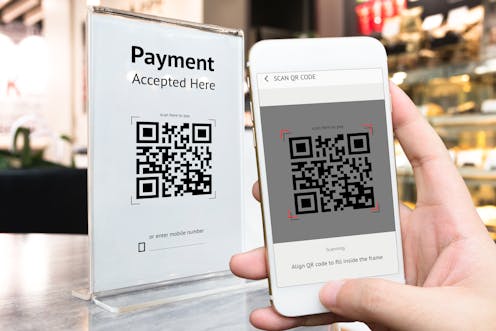Can you be hacked by the world around you?
- Written by Jeremy Straub, Assistant Professor of Computer Science, North Dakota State University
 Could scanning a QR code be an invitation to malware?Zapp2Photo/Shutterstock.com
Could scanning a QR code be an invitation to malware?Zapp2Photo/Shutterstock.comYou’ve probably been told it’s dangerous to open unexpected attachment files in your email – just like you shouldn’t open suspicious packages in your mailbox. But have you been warned against scanning unknown QR codes or just taking a picture...

